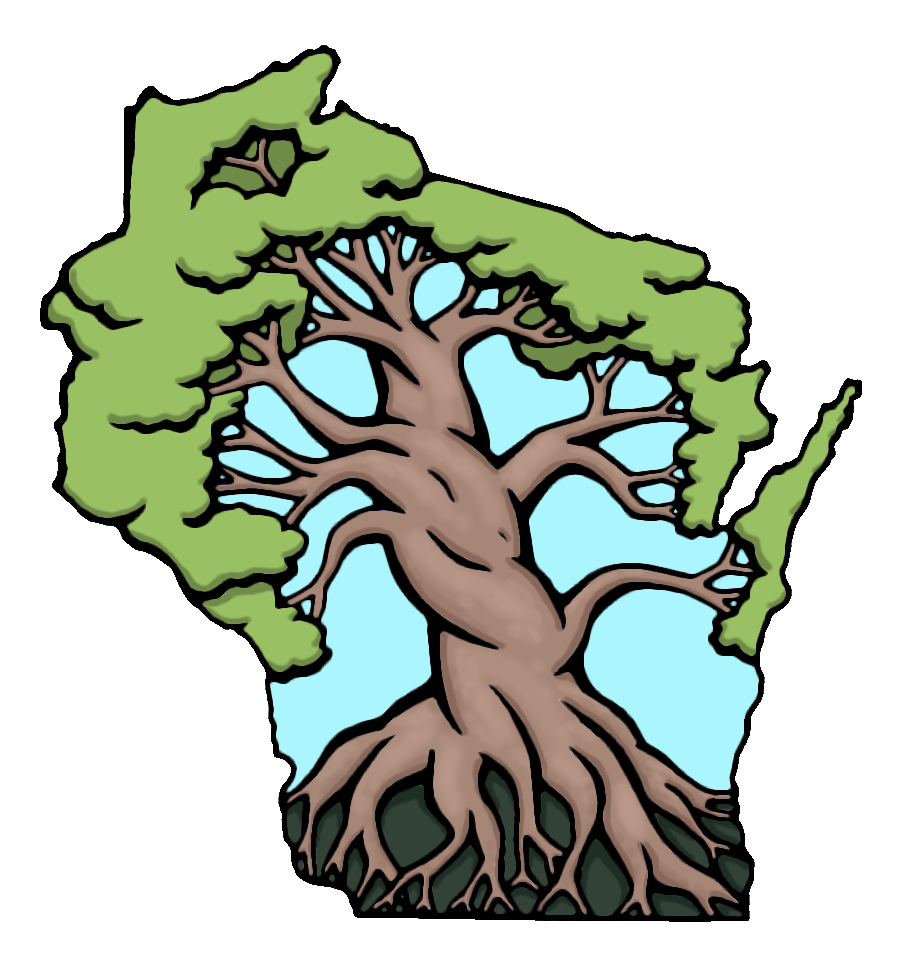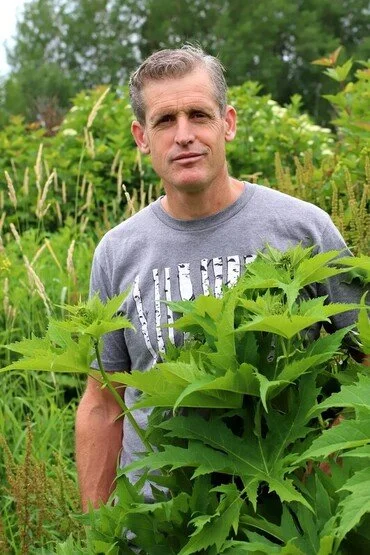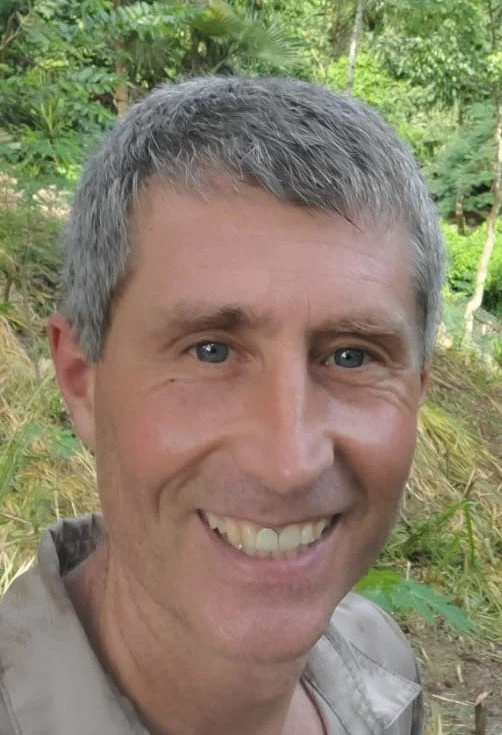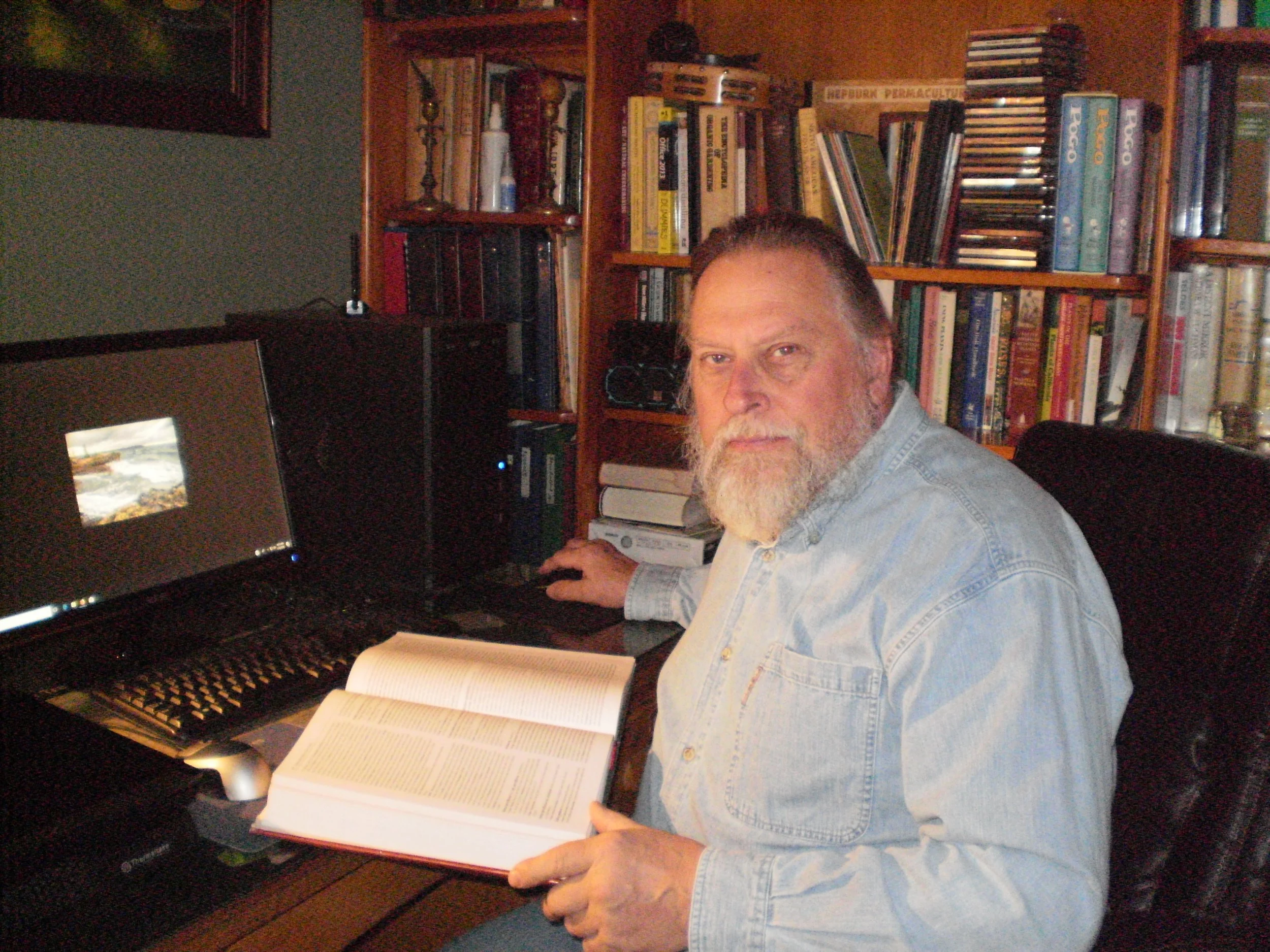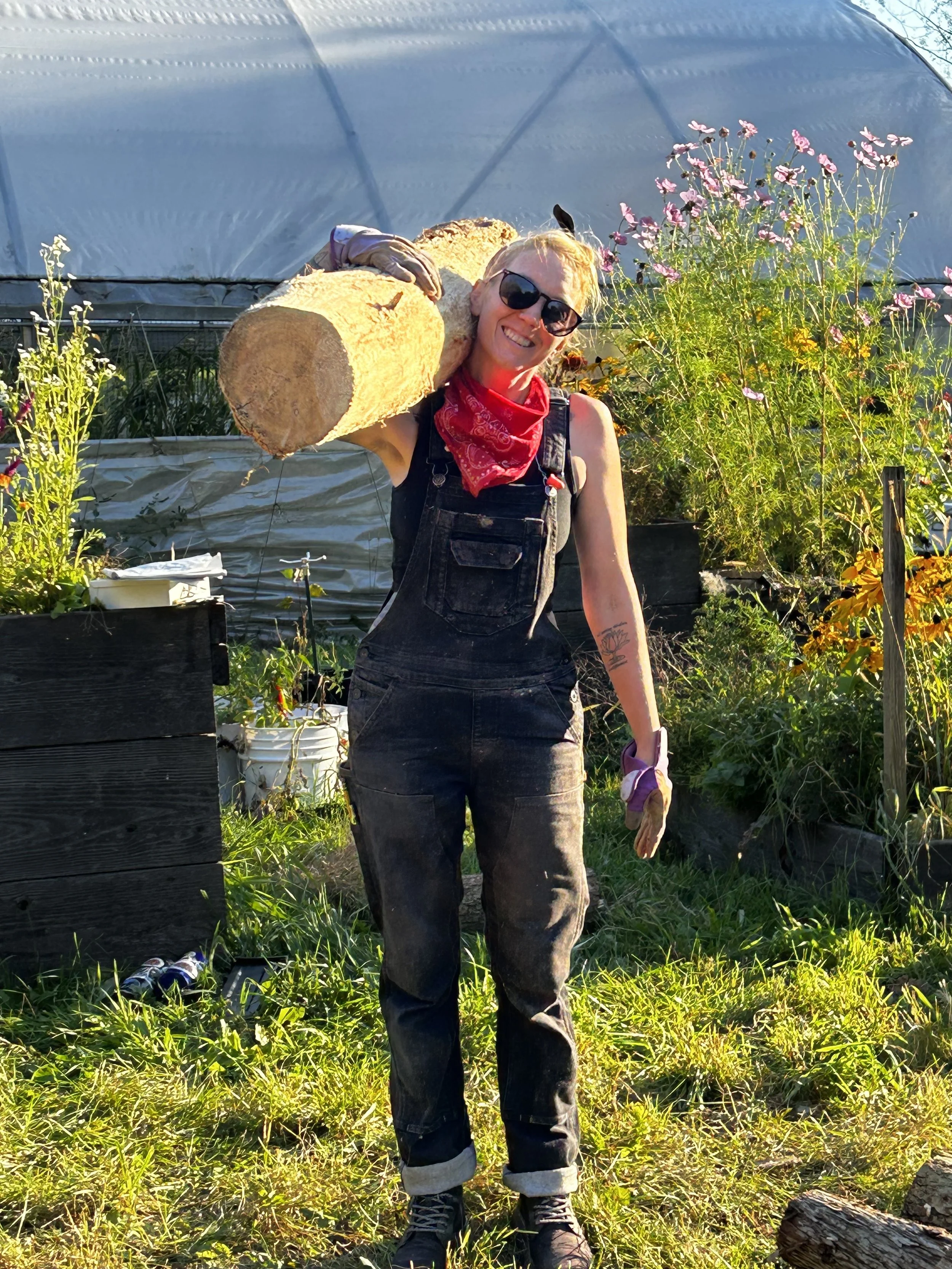2025 Wisconsin Permaculture Convergence Sessions
Keynote
Join us Saturday morning to kick off the convergence with Sam Thayer who is sure to inspire, entertain and educate.
Sam Thayer
Samuel Thayer is an internationally recognized authority on edible wild plants who has been teaching workshops and classes for three decades. He is the author of four highly acclaimed, award-winning books on edible wild plants. His first book, The Forager’s Harvest, has sold over 250,000 copies. His most recent, Sam Thayer’s Field Guide to Edible Wild Plants of Eastern and Central North America, is the winner of the National Outdoor Book Award for best nature guide of 2023. Born in Wausau, Wisconsin, Samuel began gathering wild food in early childhood. At the age of 18 he built a log cabin and began pursuing his dream of homesteading, foraging, and studying Nature. Today he lives in Northern Wisconsin with his wife, Melissa, and their three children. Besides teaching and writing, Sam runs a small organic orchard featuring apples, native fruits and berries, and edible native ground covers; he also harvests wild rice, makes maple and birch syrup, and hickory nut oil.
Wildlife Tracking
Deepen your relationship with nature—and optimize your permaculture planning, planting, and harvests—through basic track and sign. Learn track features of common animals, morphology, gait patterns, and how to interpret subtle movements through the impressions left behind.
Aimee Heavey
Biologist and Herbalist Aimee Heavey lived and breathed permaculture at sustainability education center, Rancho Mastatal, in Costa Rica, for 6 months. She received her PDC from the Finger Lakes Permaculture Institute in Ithaca, NY, and her Teacher Training Certification from Midwest Permaculture.
Aimee is passionate about embodied movement, dance and drum, rewilding, plant medicine, bodywork, wildlife tracking, and ancestral nutrition.
How to Store Your Bounty
Now that you've grown all this wonderful food, let's explore ways to store that produce so it will last as long as possible in it's original, live state. Butternut squash in May? No problem!
Mike Haasl
Mike Haasl promotes permaculture homesteading with an emphasis on high rewards for less effort. He teaches, writes and experiments with ways to homestead with a lighter footprint. He lives in northern Wisconsin and tends a big garden, greenhouse and flock of chickens.
Temperate Climate Syntropic Agriculture
This session is an introduction to syntropic agriculture practices for cold climates. Come learn the basics. Roger will be offering a two day workshop in the two day leading up to the start of the convergence. Come early and take a deeper dive with Roger.
Roger Gietzen
Roger Gietzen is a father, doctor, and humanitarian worker who first started learning about syntropic agroforestry in 2016 when he hired a consultant to come to Haiti. He could see that this approach could help address the food insecurity, soil erosion and deforestation that is ravaging the country, as well as provide a path for financial security. The journey to bring this method to Haiti and make it simple enough that an average family farmer can grasp it, has taken Roger to Brazil and eventually to Ernst’s cacao farm. After years of intense study in the tropics, Roger started applying this method in the temperate climate and now looks forward to sharing what he has learned with others.
Making and Using Medicianal Tinctures
Learn about Compounding herbal medicines through alcohol distillation. How to use the tinctures. Where to get the herbs and equipment with which to make them.
Bryce Ruddock
Bryce Ruddock is an experience Permaculture designer and homesteader living in North Milwaukee, Wisconsin. He is an ethnobotanist, historian, co author of Integrated Forest Gardening, and someone who has been making plant based medicines since 1990.
Remediation of Contaminants
Most of of the land we work has been exposed to many types of contaminants over the years: lead paint, motor oil, asbestos, and many others. This presentation will cover some principles to address and remediate some of these contaminants.
Levi Rhody
Levi is a geologist who works on environmental remediation professionally. He has taught permagardening in Ethiopia via the Peace Corps, and now has a homestead with multiple green building experimental designs, a permaculture designed orchard of over 150 trees, and raises chickens, pigs, and cattle.
Making Biochar
Come learn how to make biochar from start to finish including choosing materials, firing and then sorting.
William Dickinson
Will Dickinson is an outdoor educator and visual artist. He has extensive experience with mapping and GIS and volunteers through teaching orienteering to youth.William is an avid forager and has participated in permaculture/gardening practices, as well as exploring biochar production.
In addition to to his work as a professional artist, Will has been teaching at community centers, art leagues, and community colleges for the last 15 years. He has completed several international artist residencies, with a focus on connecting and capturing the human experience with our natural world.
For more info about his projects check out his website: www.wildterrainnav.com
High Density/High Diversity Planting
Explore agroecology ideas and learn more about how our native plants serve many purposes besides attracting pollinators, such as soil remediation and bio indicators.
Brittany Arnold
Brittany Arnold has a degree in Sustainable Agriculture and Food Systems. She teaches farm to school and has helped start four community food forests and several school orchards. Next school year she will help launch an agroforestry educational site in partnership with the city of DePere.
Forest Bathing in Your backyard
This is an experiential workshop that will invoke the ancient practice of forest bathing (Shinrin-yoku). This easy, "anywhere anytime" practice not only supports your physical and mental health, but opens the door for a truly reciprocal, appreciative relationship with the beings who share your space.
Maggie Turnbull
Maggie Turnbull is a professional astronomer, a Buddhist, a naturalist, a meditation teacher, and a mental health practitioner. She specializes in the study of life in the universe, and her goal is to help people feel more connected to the web of life that spans the earth and stars.
Survival Arts
This hands-on session includes instruction and practice in firemaking, flint knapping, and using natural materials to create art.
Aaron Laux
Aaron Laux is a multidisciplinary artist whose work is grounded in a deep, evolving relationship with the natural world. What began as survival art—reclaiming long-lost skills like stone tool making—has grown into a contemporary practice of sculptural mosaics crafted from local, natural materials. His work is inspired by the patterns and processes found in nature, reflecting a lifelong exploration of how humans connect to their environments across time and culture.
Seed Saving and Seed Paper Making
Learn how to save a variety of seeds and use seeds to make homemade seed paper from recycled materials. The paper can be planted and used for ornaments and greeting cards.
Cheryl Dewelt
Cheryl DeWelt is the Environmental Education and Garden Manager at Madison Children’s Museum. She is passionate about sustainability, regenerative agriculture, and the environment. She has been at the museum for 15 years and has over 30 years of experience educating about nature, permaculture, and gardening. She earned her degree from UW-Madison and holds a permaculture design certificate. Cheryl is also a visual artist who works with COB, wood, metal, and fibers.
Boxbreakers Clubhouse: Building Outdoor Learning Spaces with Youth
Facilitated participant led discussion and practicum about creative ways to expand outdoor learning opportunities for youth in schools and other settings.
THomas Ward
Tomas Ward is an ecological dabbler currently residing in Sheboygan County WI. A suburban refugee, he is working to establish a small herbal medicine homestead on an abandoned dairy pasture. His random resume includes stints in conservation biology, home improvement trades, writing and editing. He holds a bachelor's in English literature from UC Berkeley and a M.S. in natural resources and environmental sciences from the University of Illinois at Urbana-Champaign
Tomas' recent daily work at a public elementary school has narrowed his focus towards creative use of outdoor space for unconventional learning experiences. Using a small grant from the WiDNR foundation, he established a unique classroom outside the art room on an elementary campus in 2024-2025. He is eager to connect with others working in this arena and to simply be with the Wisconsin Permie tribe. Find me on Youtube (channel name: tomdotbot) or blogging at literatenaturalist.wordpress.com.
How to Use a Swamp on Your Homestead
I will present diverse ways to tap into a marshy environment to bring production and fertility to a family homestead. Special emphasis will be given to the cultivation and use of willow and the forgotten folk techniques of coppicing.
Nathanael Rhody
My home is on a half acre piece of land. Though somewhat limited in space, my wife and I cultivate a large garden and fruits, as well as chickens and ducks. The purpose of our homestead is to raise our children in an outdoor life filled with plants, animals and traditional handicrafts.
With all of this, we also run a blog about our homestead projects, called Peasant Ways for Modern Days. We give a particular emphasis on researching and rediscovering forgotten methods and culture in which our ancestors interacted with the natural world. With our findings, we look for ways to revive and integrate these old folk methods into life in the 21st century.
Rope making
Join Ron as he teaches and demonstrates the old ways of making rope!
Ron Kulas
Im a farmer/homesteader that was raised on a small farm. Back in 2000 I built a rope making machine based off an old school design. I’ve been making rope ever since.
Profitable Permaculture
20 years of highlights on our transformation from a high input row crop farm to a sustainable low input perennial crop and silvopasture business model.
Ryan kolodziej
Ryan and DeAnn Kolodziej have lived and farmed on 55 acres in Amherst WI since 2003. They both grew up in Portage county on family farms tending market gardens.
Married in 2001 they set their goals to preserve thier rural lifestyle by developing a farm business model that doesn't require expensive infrastructure and machinery. They operate and run Epic Nature LLC.
Rocket Mass Heater Build
Conversion of a cabin heating system from wood burning stove to rocket mass heater.
Jeff Wala
Jeff is a campsteader who has learned about rocket mass heaters from multiple sessions with experts at Wheaton Labs in Montana. He currently lives comfortably in a yurt in the woods East of Rhinelander, including winters, thanks to a RMH build completed two years ago. He is working on experimental builds and looking for other adventurous spirits seeking to pursue a deep permaculture lifestyle.
Going Low Tech in High tech World
Come learn why low tech is so important for mental and physical health.
Time Chapel
Tim Chapel is a 3rd generation bee keeper and is currently homesteading in Conover WI where he and his wife, Christine, have been putting into practice their desire to build a simple life in a high-tech world. Gardens, greenhouses, an orchard, solar power, draft horses, composting, focus on sustainability, and much more occupy their daily life.
The Ecopsychology of Restorative Landscapes
Introduction to ecopsychology principles that are involved in design of aesthetically pleasing and therapeutic landscapes. We will also discuss the common differences for design of personal vs. public healing gardens. Come prepared to reflect on your preferences and leave prepared to implement evidence based design into spaces you manage.
Nahani Lukes
I live in a house my grandparents built along the Peshtigo river in northern Wisconsin. I had the privilege of being raised by a botanist and a naturopathy doctor who together incorporate permaculture principles and practices into our daily life. I rebeled against them for some time, as youth often do, yet after learning how most of society functions I realized how smart my parents were to raise me in this way. About 10 years ago, I came back around. I am now working towards becoming a registered Horticultural Therapist. I strive to help people connect with nature and design spaces that facilitate this inn a therapeutic way. I aspire to study this in an academic research setting in the future. I also dream of having my own children, but for now I spend time with kids as a nanny and an activity coordinator at a local youth demonstration garden. I enjoy all things fiber crafts, from spinning, to dyeing, weaving and crocheting, especially in the winter. I look forward to learning and growing together with all of you at the convergence this year.
Intro to Fly Fishing: Exploring Traditional and Tenkara Methods
In this session you will explore the world of fly fishing in this introductory session that will cover the basics of traditional fly fishing as well as the Tenkara method, which originated in the mountains of Japan some 400 years ago. Class will also include instruction on the basics of casting a fly rod and students will be able to try their hand at casting if they like.
Terry Rutlin
Terry Rutlin retired as Outdoor Adventure Program coordinator for Nicolet College in Rhinelander. It’s here where he was “bitten by the Fly Fishing bug” and continues to teach Fly Fishing for the college in his retirement.
